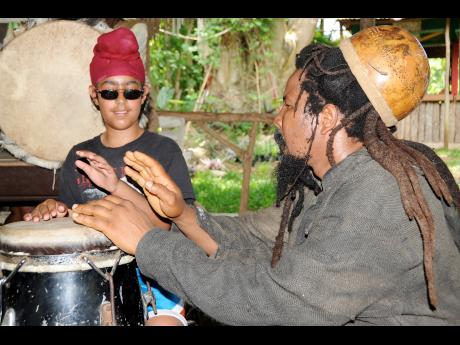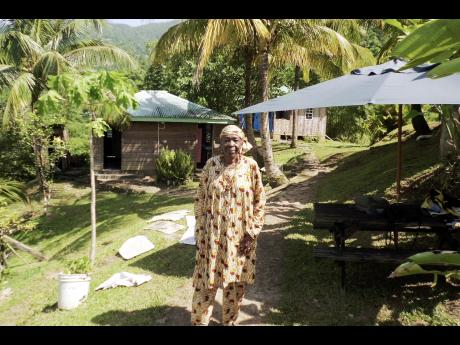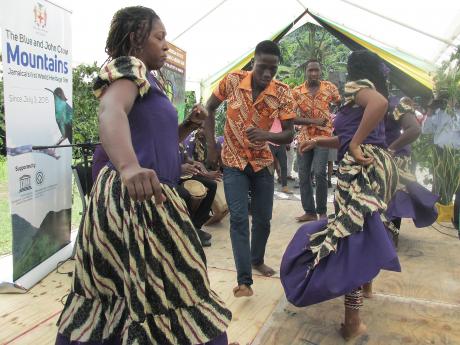REDI for community tourism - JSIF spending millions to diversify offerings for visitors
The Jamaica Social Investment Fund (JSIF) is pumping millions of dollars into entities which are embarking on community tourism products as part of efforts to diversify the country's offerings to visitors.
JSIF has developed a Rural Economic Development Initiative (REDI) to improve market access for micro and small-scale rural agricultural producers and tourism product and service providers.
According to JSIF: "Ultimately, the micro and small enterprises which receive assistance under REDI should realise an improvement in their ability to meet local and international standards and thereby have greater access to the formal market."
Through REDI, which is funded by the World Bank, JSIF will provide financial and technical support through grants for eligible projects.
Community-based tourism has become one of the sector's fastest-growing segments globally, as new generations of travellers seek more meaningful experiences from their leisure time.
These avid travellers are searching for much more than sun, sea and sand; they desire to immerse themselves in the nature, heritage and cultural experiences of the destinations they visit.
Many are eager to venture into communities to interact with citizens in their normal environment and JSIF is convinced that Jamaica has some of the world's most beautiful natural settings and a rich history and culture that make us uniquely poised to take full advantage of this growing trend in community tourism.
Traditional beach and sightseeing tourism has been a boost to Jamaica's economy; however, community tourism enables the country to offer our visitors another facet of Jamaican life. One that immerses them in the fascinating and authentic culture of the island's varied communities.
This potential has motivated Jamaica to commission the preparation of a community tourism policy and strategy to encourage and guide the development of this form of tourism in the years to come.
This policy will not only establish a clear commitment to fostering positive community involvement in tourism, but it also sets the stage for the inter-agency cooperation necessary to assist communities and local enterprises in creating a competitive tourism product.
The benefits to communities and the nation as a whole, from having a vibrant community tourism offering are numerous. It is not just about the tourism related opportunities, but also the opportunities to advance key national policies such as poverty reduction, gender empowerment, equality as well as employment and business creation at the community level.
According to Dr Wykeham McNeill, minister of tourism and entertainment: "This community tourism policy is in keeping with our mission to foster sustainable tourism development and fuel growth in local economies, which will benefit every Jamaican as we strive to achieve our goal of making tourism for all."
REDI will achieve
its objectives by:
- Facilitating and strengthening of the supply chain linkages between the agricultural sector and end users in processing, the tourism sector, fast food chains, restaurants and supermarkets.
- Supporting the development of community based tourism as a viable option and opportunity for economic investment.
- Strengthening the capacity of rural groups to be able to plan and implement income generating projects.
- Ensuring greater sustainability of rural development through inter agency collaboration.
REDI help for community tourism:
- Investments in promotional strategies that will improve competitiveness, for -example, in developing communication materials such as brochures.
- Infrastructure development, such as creating visitor and information centres, museums, public rest room facilities.
- Providing training in marketing, business and financial management, disaster mitigation and recovery, among others.
Some JSIF-supported tourism enterprises:
Rastafari Indigenous Village (Porto Bello,
St James)
The Rastafari Indigenous Village comprises a community working at farming, craft making, the sustainability of cultural and traditional knowledge and a repository of Rastafarian information. JSIF has invested $18.7 million in infrastructure improvement and training.
Cockpit Country Adventure Tours (Albert Town, Trelawny)
The Cockpit Country Adventure Tours is owned and operated by the southern Trelawny Environmental Agency which has as its primary objective, the conservation of the Cockpit Country and its communities. JSIF has invested $15.5 million in trail rehabilitation, safety equipment, in infrastructure improvement, training and marketing.
Ambassabeth, Bowden Pen Farmers Association (Millbank/Comfort Castle, Portland)
The Bowden Pen Farmers' Association owns Ambassabeth (Lion House) Cabins located near the border of St Thomas and Portland. Its location offers stunning scenic views and access to the wilderness of the Blue and John Crow Mountains. The JSIF has approved $13 million for the procurement of solar and water purification systems, for the procurement of bunk beds and soft furnishings for the cabins and for appropriate industry training and marketing.
Jamaica Conservation Development Trust, Mavis Bank, St Thomas, ST Andrew, Portland
The Jamaica Conservation and Development Trust offers eco/hiking/adventure tours in the famed Blue and John Crow Mountains of Jamaica. The trails leading to the highest point in Jamaica - the Blue Mountain Peak (2,256 metres), are of historic and natural heritage significance. They have been in use for well over a century and still attract thousands of Jamaicans and visitors from overseas.
The current infrastructure at Portland Gap - a gazebo, cabins, a ranger station, cooking areas and rest rooms - are in major disrepair and very rustic and the rates for use have not been adjusted for a number of years.
There is no particular infrastructure at the peak. Without urgent repairs and refurbishing, the peak and its access trails along with the facilities at the peak and Portland Gap will become unusable and the funds currently generated will be lost.
The site recently received inscription to the UNESCO World Heritage and is a mixed facility consisting of both outstanding natural and cultural resources. JSIF is investing approximately $22.75 million in the well needed infrastructure.
Charles Town Maroon Council, Charles Town, Buff Bay Valley, Portland
Charles Town is a Maroon community located in the foothills of the Buff Bay Valley with the river meandering along the entire length of the community. There was an already established Maroon tourism entity/activity consisting of a Safu or Asafu Yard (where the Maroons gathered in the past in preparation for battle) and Maroon Museum. The JSIF's investment of $17.46 million has facilitated upgrading of the museum, an office/information centre, gift shop and sanitary facilities.
Caribic Vacations is the main supplier of visitors to the area. In addition to the cultural aspects of Charles Town, the area produces a number of agricultural products including coffee and is also a growing bee keeping community.



